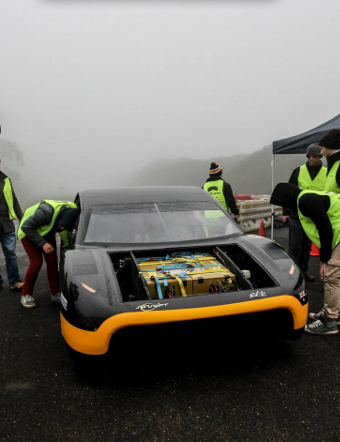Sunny grand prix gets rolling
 The 2023 World Solar Car Challenge is kicking off this week.
The 2023 World Solar Car Challenge is kicking off this week.
A total of 31 teams from around the world are embarking on a five-day race, covering 3,000 kilometres from Darwin to Adelaide.
The international event showcases the potential of renewable energy technology in the automotive sector.
Solar panels power electric batteries, enabling these vehicles to reach speeds of up to 120 kilometres per hour along the Stuart Highway.
Experts say the event is extremely useful for testing new technology in renewable energy, with some cars featuring high-efficiency batteries not yet available on the market.
However, the race presents considerable challenges in the Australian outback, with mechanical failures, overheating batteries, and other issues posing risks for participants.
The competition features two classes: the ‘Challenger Class’ and the ‘Cruiser Class’. The former involves single-occupant, highly efficient vehicles racing to the finish line in 4-5 days. The latter class focuses on real-world relevance, aiming to emulate production passenger cars.
Teams are judged not only on speed but also on their ability to complete specific stages within set time limits and meet control stops along the way. The winner is determined based on a score calculated from several factors, including energy use and practicality.
The competition, while not officially a race, encourages teams to build efficient vehicles and employ tactical strategies.
In addition to its competitive aspect, the World Solar Car Challenge serves as a platform for innovation, with some past participants spawning successful companies in the renewable energy and electric vehicle industries.







 Print
Print